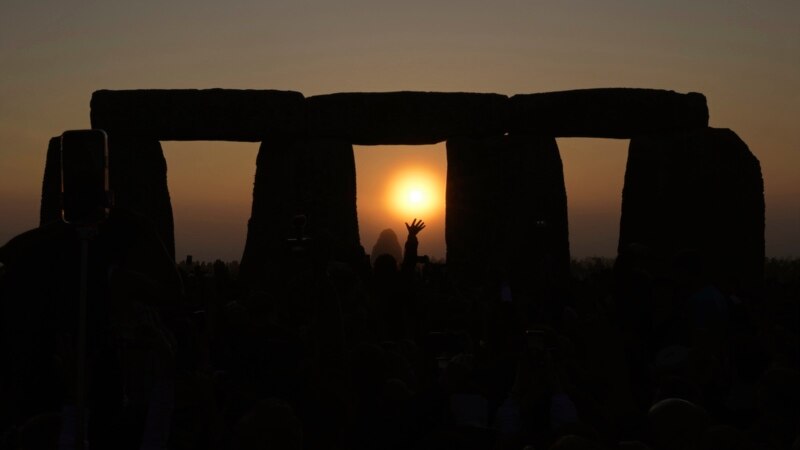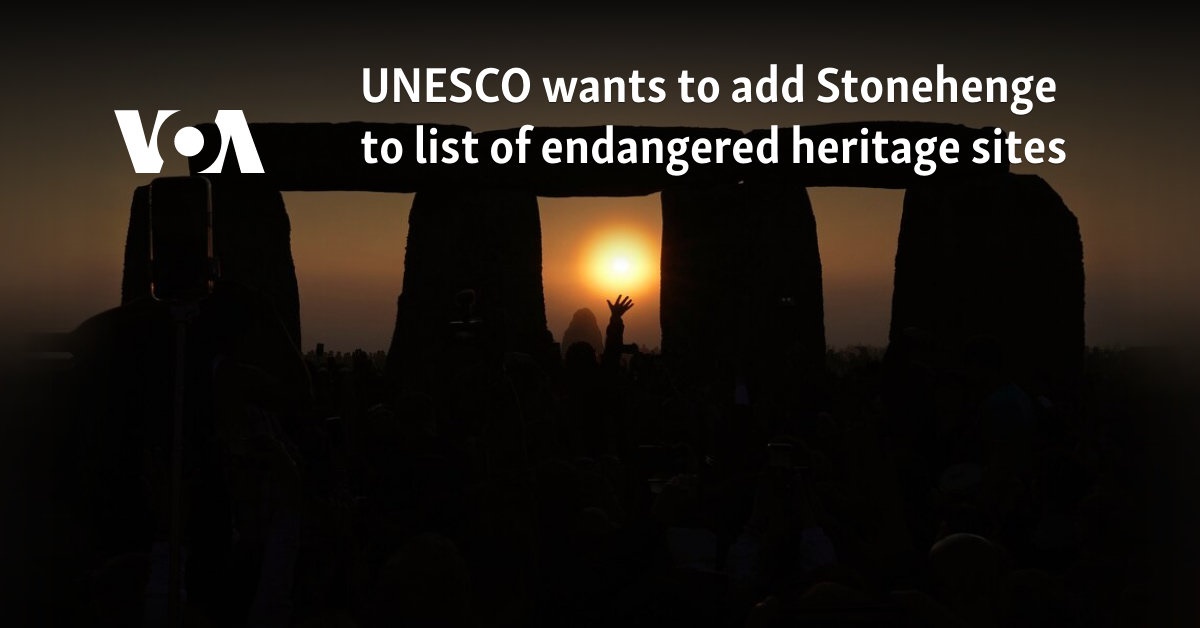This website uses cookies so that we can provide you with the best user experience possible. Cookie information is stored in your browser and performs functions such as recognising you when you return to our website and helping our team to understand which sections of the website you find most interesting and useful.


The U.N.'s cultural organization said Monday it recommended adding Stonehenge, the renowned prehistoric site in England, to its world heritage list of sites in danger, in what would be seen as an embarrassment for London.
The site has been in the U.N. organization's sights because of British government plans to construct a controversial road tunnel near the world heritage site in southwestern England.
In a written decision seen by AFP, the World Heritage Committee recommended that Stonehenge be added to the U.N. list of world heritage sites in danger "with a view to mobilising international support."
The decision will have to be voted upon by the member states of the World Heritage Committee at a meeting in New Delhi in July.
One diplomat told AFP that the decision will likely be approved.
Stonehenge has had UNESCO world heritage status since 1986.
Placement on the U.N. body's world heritage list of endangered sites is seen as a dishonor by some countries.
Last July the British government approved the construction of a controversial road tunnel near Stonehenge despite efforts by campaigners to halt the £1.7 billion ($2.2 billion) project.
The diplomat pointed out that London had decided to approve the project "despite repeated warnings from the World Heritage Committee since 2017."
The planned tunnel is intended to ease congestion on an existing main road to southwest England that gets especially busy during the peak holiday periods.
Experts have warned of "permanent, irreversible harm" to the area.
Druids have held protests against the tunnel at a site they consider sacred and where they celebrate the summer and winter solstice — the longest and shortest days of the year.
Built in stages between around 3,000 and 2,300 B.C.E., Stonehenge is one of the world's most important prehistoric megalithic monuments in terms of its size, sophisticated layout and architectural precision.
UNESCO runs a list of sites with World Heritage status around the world, a prestigious title that countries compete to bestow on their most famous natural and man-made locations.
A listing can help boost tourism — but it comes with obligations to protect the site.
The port city of Liverpool in northwest England lost its World Heritage status for its docks in 2021 after UNESCO experts concluded that new real estate developments in the city had taken too much of a toll on its historical fabric.



 Africana55 Radio
Africana55 Radio 
